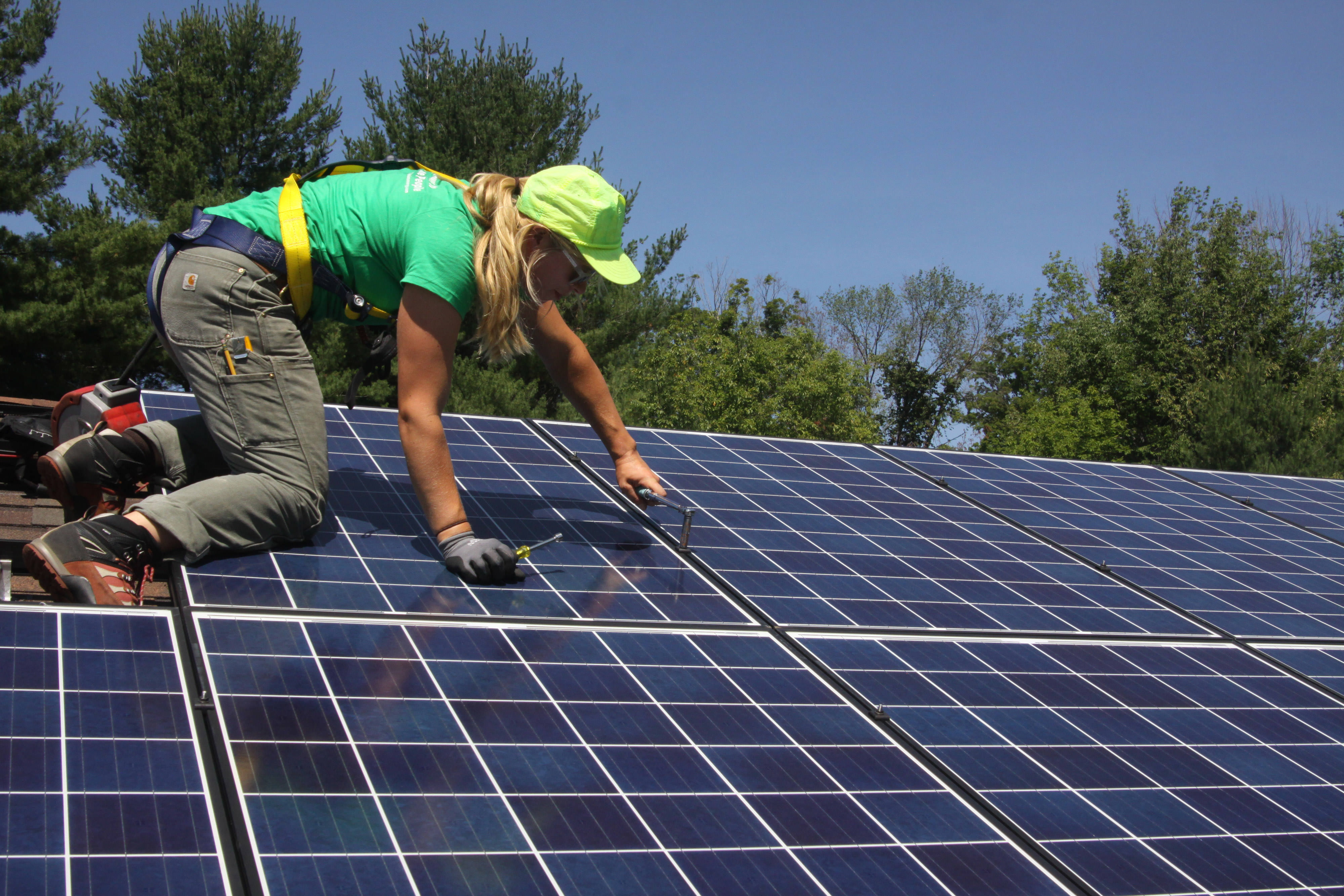U.S. tax policy can support climate and energy solutions, as well as land and water conservation all while continuing to support our nation’s charities.
Tax policy is a powerful tool for achieving policy objectives in the United States. Its effect on the charitable sector and on conservation activities has long been recognized, but the potential for tax policy to encourage farmers, ranchers and foresters to adopt practices that sequester carbon and reduce emissions has more recently emerged. Tax incentives are also critical for moving toward a clean energy economy and modernizing infrastructure. Based on its long history of advocacy for tax policy to support conservation, The Nature Conservancy (TNC) encourages Congress to consider several tax proposals to advance land and water conservation initiatives and an array of tax incentives to drive investments in climate solutions and clean energy innovation.

Key Tax Proposals to Encourage Land and Water Conservation and Climate Action
Strengthen the charitable income tax deduction. TNC strongly supports strengthening and expanding charitable giving, including tax policies that incentivize giving. TNC supports legislation that protects and enhances the current charitable tax deduction and makes the charitable deduction available to all taxpayers.
Tax reform proposals have proposed placing significant limits on tax deductions for charitable gifts. The U.S. tax code has encouraged charity by providing taxpayers with an income tax deduction for such gifts since the tax code was originally adopted in 1917—making charitable giving a part of the American identity and distinguishing the United States from nearly every other country.
Capping the deduction for charitable gifts would have a disproportionately adverse impact on charities like TNC, which depends on gifts of highly appreciated assets such as gifts of land and/or conservation easements.
Conservation Capital Gains Incentive. This allows land-rich, cash-poor landowners to realize a greater net return after taxes from a sale of land or the sale of an easement for conservation purposes than from a sale for other purposes would allow landowners who sell land or an easement for conservation purposes to eliminate the otherwise taxable capital gain from being subject to the federal capital gains tax and thus, to keep more of the sales proceeds.
At the same time, it would enable conservation organizations and agencies purchasing land or easements for conservation to stretch available dollars for such purchases by using this new proposed tax provision and the “bargain-sale” provisions currently in the tax code. (In 2022, for example, voters in 14 states considered ballot measures for public funding and policies to protect people and nature. Seventeen measures passed, totaling more than $7 billion for conservation.)
Provide Tax Credits for Landowner Expenses Related to Nutrient Management and/or Green Infrastructure. To encourage landowners, the tax code could provide enhanced tax deductions or tax credits equal to the costs and expenses incurred by the landowner in implementing best practices for nutrient management, including upgrades to septic systems or green infrastructure in sensitive areas for water quality.
A variation of this proposal would be to provide a federal income tax credit equal to the value of the crop insurance premium that is paid where the landowner has adopted and implemented approved nutrient reduction practices.
Encourage Private Capital Investment in Conservation Through Tax Incentives. An investor could be offered a federal tax credit for a portion of investment return as well as a reduced financial return in exchange for the investor’s capital investment in a socially worthwhile project or activity, such as a natural infrastructure project which has environmental and societal benefits and financial return on investment.
Investors can compete for a fixed pool of credits (or other incentives) to ensure pricing discipline and to reward projects that deliver valued co-benefits.
Tax incentives to attract private capital to public benefit projects have been used in the past, such as with Build America Bonds and financing for the NY/NJ Liberty Zone. TNC has used this financing mechanism in conservation projects using the New Markets Tax Credit Program.
TNC supports making natural infrastructure projects eligible for this type of tax-incentivized funding or financing mechanisms.
Maintain and Expand Existing Credits for Renewable Energy and Electric Vehicles. The federal Production Tax Credit (PTC) and Investment Tax Credit (ITC) have been instrumental in helping develop and maintain a strong market for renewable energy resources as we transition to a low-carbon future.
TNC supports continuing, expanding and extending both the PTC and ITC in their current forms.

Key Tax Proposals to Encourage Clean Energy and Climate Solutions
Clean Energy Tax Credits. Tax incentives, such as the section 45 production tax credit, section 48 investment tax credit, and the 45Q carbon capture tax credit, have been critical for reducing emissions across the power, transportation and industrial sectors. Predictable incentives over longer periods will provide certainty and spur investments in clean energy generation. Layering additional incentives for clean energy development on brownfields or abandoned mine lands would direct clean energy projects away from sensitive habitats and aid economic revitalization of local communities. Reinstating or reforming tax credits, such as the 48C clean technology manufacturing credit and 30D electric vehicle tax credit, would provide critical support for manufacturing and deploying clean technologies in the United States. Congress should add flexibility, such as direct pay mechanisms in which project developers receive refunds for tax credits instead of relying on the tax equity market, to unlock capital for these investments with no additional costs to the government.
Incentives for Natural Climate Solutions. Farmers, ranchers and foresters interested in implementing practices to sequester more carbon on their lands face high up-front costs and uncertain returns on their investments. To reduce barriers to voluntary carbon market participation and increase deployment of natural climate solutions, TNC supports a tax credit that could compensate these landowners for development costs and reward demonstrated carbon sequestration in forests, agricultural lands and wetlands. The tax credit should be based on robust standards for monitoring, reporting and verification to ensure the benefit goes to landowners delivering actual results.



